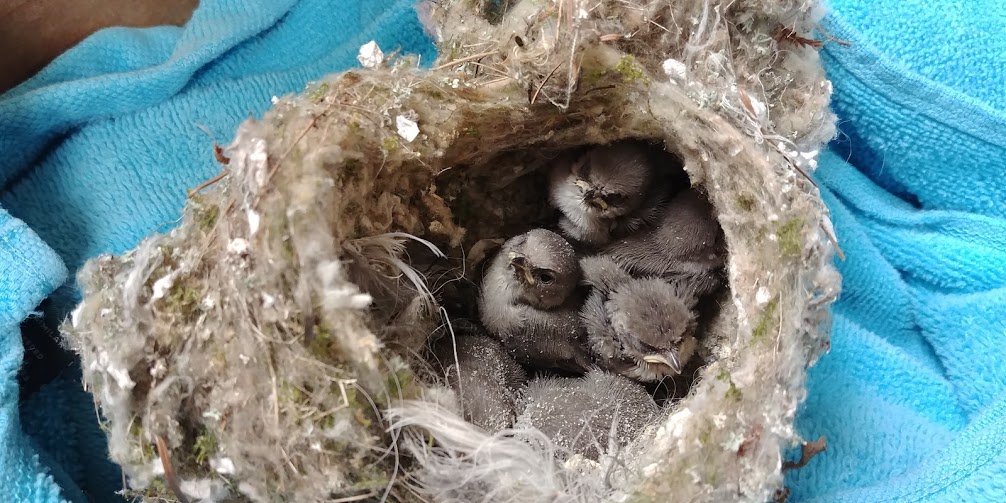Found an Orphaned Wildlife Baby?
Posted April 24, 2020 by Vindi Sekhon
One of the clearest signs of spring is the reappearance of migrating birds and readily available sources of food including seeds, insects, and fruit. Migrating birds return to their breeding grounds early spring and midsummer to reproduce. They tend to find trees, rooftops, wetlands, and ponds to prepare for their nesting season.
Females and males become active and vocal using their songs to attracts mates and sometimes to scare away predators while protecting their nests.
In some cases, babies are orphaned from their parents due to natural or human disturbances. You can help save orphaned babies when you find them in distress this spring!

What you can do to help an orphaned baby
- Help keep the bird safe. If the bird is in danger from a damaged nest, unsafe conditions or appears to be seriously ill or injured, it will need immediate help. Gently place the bird in a small box lined with tissues, paper towels, or similar material and cover the top of the box loosely with newspaper or a towel. Then place the box in a warm quiet safe area.
- Have they have abandoned a nest? This will only happen if BOTH parents have been killed. This is a very rare occurrence. A surviving parent will raise baby birds on their own. It is more likely that the parents can get to and from the nest without you seeing them. If you have found both parents dead, then please call the Support Centre for guidance.
- Call Wildlife Rescue Support Centre to arrange a time for drop-off following the COVID-19 protocols.
Tips to care for the baby until you get it to Wildlife Rescue
- Prevent stress to the bird by avoiding handling and loud noises, including talking.
- Keep children and pets away from all wildlife.
- Keep the bird close to the location in case the parents’ return.
- Always wear gloves when handling young birds for the safety of the bird and you. After handling a bird, wash your hands thoroughly with soap and warm water.
- Please do NOT provide any food or water to the bird. Young birds require a specific diet to develop properly and their parents feed them 3-4 times every hour to meet that need.
- Sharing improper food can cause a young bird to become sick quickly. Instead, wait for the parents, or for Wildlife Rescue staff to provide the correct nutrition.
Nearly all birds are protected by the Canada Migratory Birds Act, which makes it illegal to disturb or handle active nests. If you have observed orphaned wildlife babies or a clutch of ducklings without their mother and it has abandoned them for a period, please contact us. Don’t move a nest, even if it’s in an inconvenient spot.
Please contact our Support Centre for assistance to ensure you are following federal laws and COVID-19 protocols for everyone’s safety.
Help save wildlife orphaned babies!
Share this with friends and family:
Posted in Education
Tags: breeding, ducklings, goslings, hummingbirds, mating, nestlings, orphaned, orphaned wildlife, spring, spring season, wildlife, wildlife rescue bc, wildlife species
